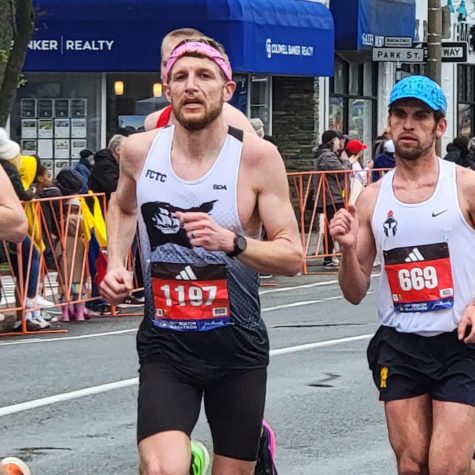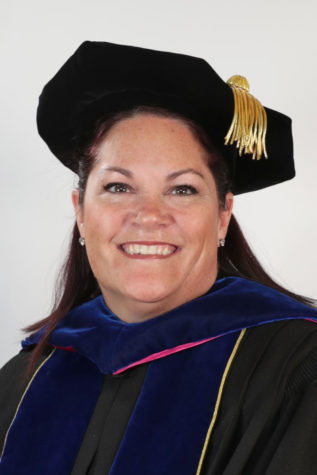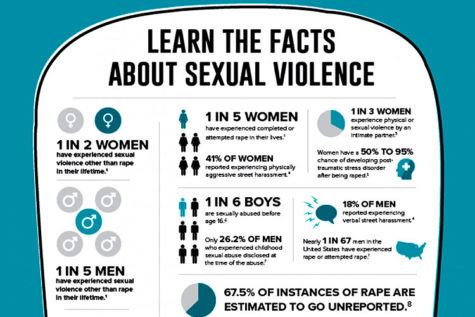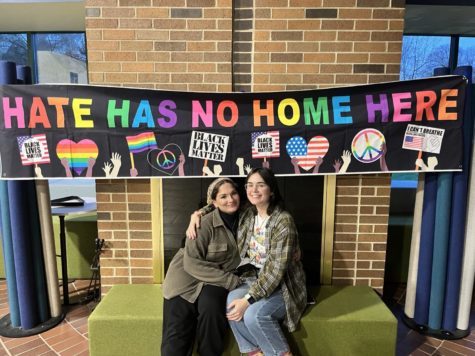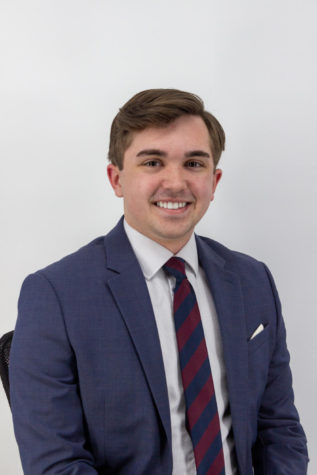Earls brings roleplaying to classroom
September 17, 2019
Averill Earls, Ph.D. professor of history has a unique way of teaching her students.
Earls roleplays historical moments. She speaks with a foreign accent and dresses like those in that moment of time, all while not breaking character.
When asked about how the use of role playing arrived at the classroom, Earls said it stemmed from her love of board gaming.
“I am a board gamer myself, and a few years ago I attended a session on role playing games for history classes at a professional history conference,” she said.
“In that session we got to play a mini version of a Constitutional Convention game. From that moment I was hooked-and I knew there’d be students at Mercyhurst who would love it too.”
And love it they do.
The students, both history and non-history majors alike, say the role playing games really help benefit their learning.
“It forces you to take on a historical position,” senior History and Anthropology major, Hannah Pfeifer said.
“It’s challenging, but it makes you understand the content at a high level.”
Many students agree.“It takes you one step further in your learning,” senior History major, Rachael Wilson said.
However, the game Earls played at the conference was for the Constitutional Convention, so why choose the French Revolution to implement this form of teaching?
“The Reacting Consortium has a really excellent ‘French Rev’ game, which focuses on the ideas of Jean Jacques Rousseau and Edmund Burke. But even though the course is titled ‘French Rev through Simulation,’ I actually decided when I was designing the class to include both the French Rev game, and another game – one that isn’t published yet, but that the authors graciously sent me materials for – on the Haitian Revolution,” Earls said.
“It’s easy to fall into the trap of thinking that the Enlightenment ideas that created such upheaval in Europe in the 1790s, and in the Americas in the 1770s, are specific to ‘Western civilization,’ but in truth, the revolution that took place in Haiti was far more radical than anything in what would be the United States or even France, and I wanted to bring together these closely related historical moments through this immersive, challenging game play.”
The game can become challenging at times, but students can take away a lot from their participation.
“This game takes place over 200 years ago. Some students have to try to argue to preserve slavery. Others have to fight against women’s rights. All have to think about what ‘democracy’ means, how to compromise and about the conditions that created these revolutionary moments in France and Haiti.
Those are important questions that are absolutely still relevant and important to be asking today,” Earls said.
“Even though the ‘game’ can go off the ‘historical’ track, we spend a class period at the end talking about what really happened in history, and why our enactment of these historical moments went differently. That emphasizes historical contingency, context and nuance. These are all lessons I, as a History professor, strive to teach in all of my classes.
In a lot of ways, these role-playing games allow students to discover those lessons on their own.”
Earls’ students agree that lessons are learned when it comes to playing these games.
“It forces you to break out of your comfort zone,” senior History major, Bill Riva, said. “You go against your own thought process, you learn new things and get into character.”
“We understand the frustration members of the national assembly felt,” Alex Strauss, a fellow senior History major said.
“We understand the struggles France had during this time and it allows students to sympathize with historical events.”
Earls believes this method should be implemented in more classes.
“I actually just ran a session in our Center for Teaching Excellence on these games, and two of my current students joined me to give the professors who attended a chance to ask them questions about their experiences.
Already I know of two professors who plan to implement role playing games in their classes, this semester and next semester!
“However, I know there are other professors – like Dr. Clemons, for example – who run simulations in their courses, which are quite like these games, but built into the middle or end of a more traditional course. I’m sure anyone who has taken Geopolitics will tell you how awesome that course is, especially the simulation. It makes your heart race! You want to win! And in wanting to win, you probably do a little – or a lot – more work to prepare than you would in full-on traditional classes.” Earls said.
Be sure to look out for more of Earls’ roleplaying classes in the future.

